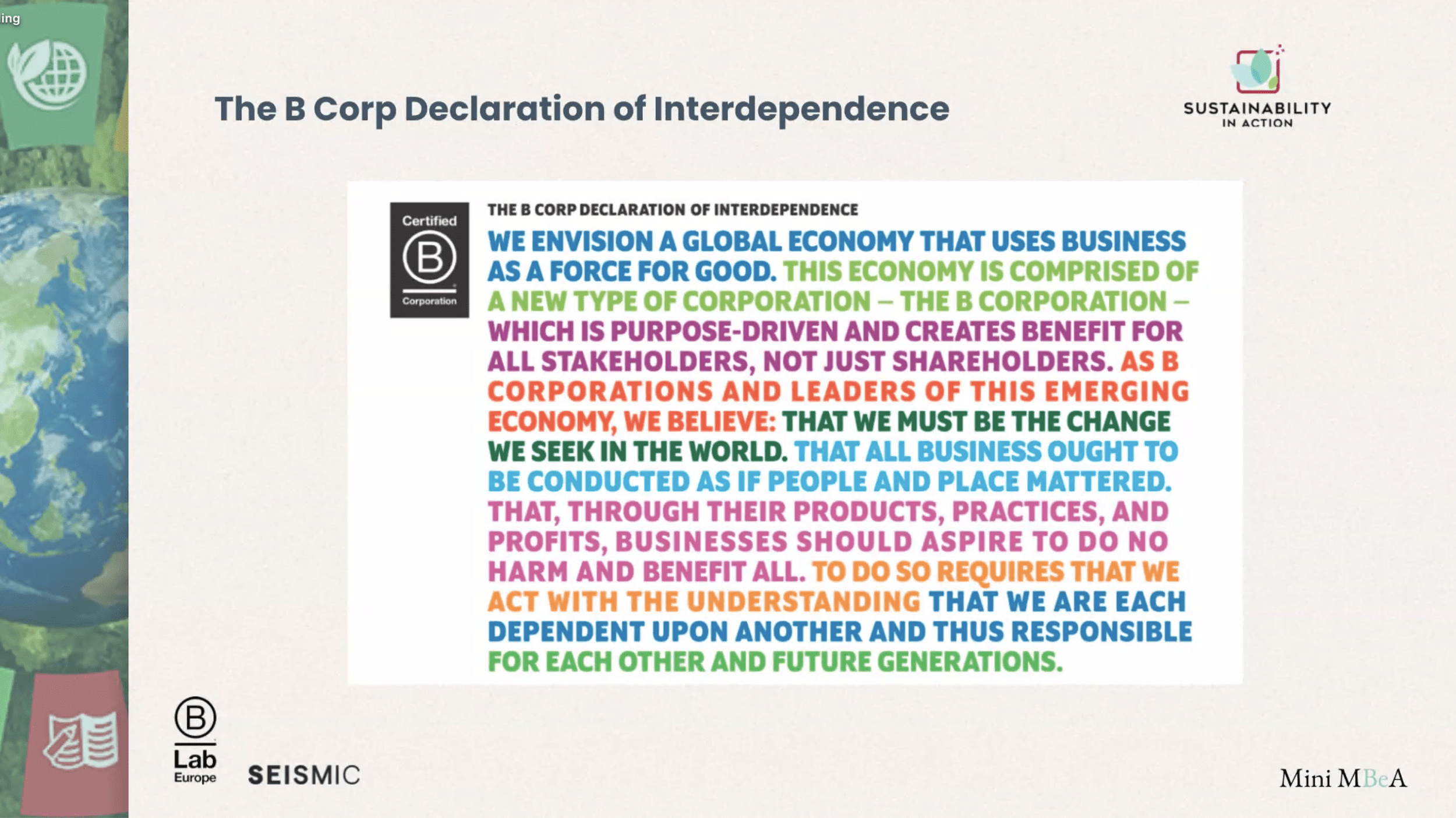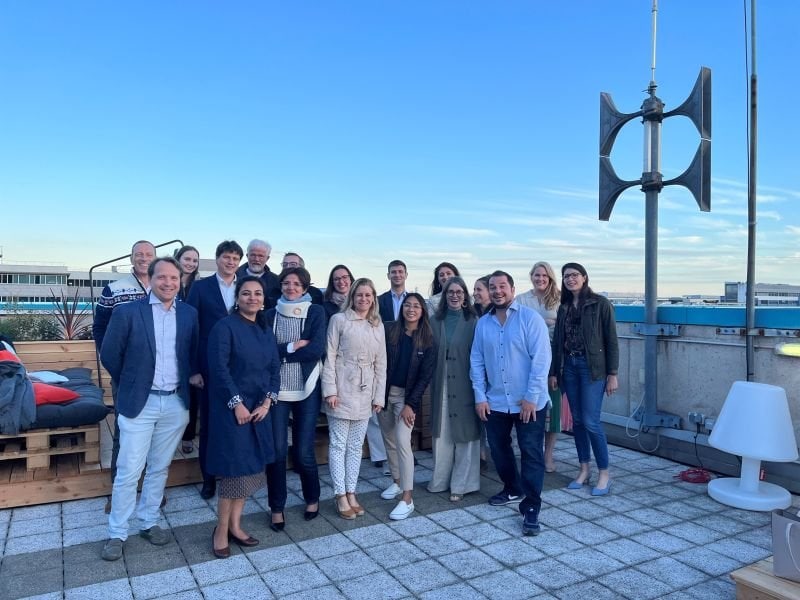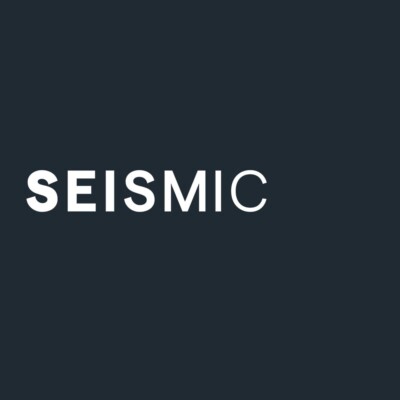The power of the B Corp framework for business students & professionals

We’re witnessing a response to the growing demand from professionals and students to embed purpose into business.
Confronted with growing market pressures around sustainability and ESG, companies globally are driven to explore how to improve and report on their performance. To prepare managers for this new reality, business schools are iterating their curriculum to integrate greater focus on sustainability, good governance and corporate citizenship.
Recognising this growing need and keen to be part of the solution, Seismic partnered with Sacred Heart University’s Jack Welch Business School in Luxembourg to initiate a unique, first-of-its-kind condensed MBA curriculum. The aim is to prepare professionals to manage ‘better business’, using B Corp and its assessment framework as a tool for continuous improvement.
The 11-week Mini Master of Benefit Administration (Mini MBeA) programme was delivered virtually to participants across Luxembourg and the UK, with the final session held in a hybrid format that allowed participants in Luxembourg to meet in person. The Mini MBeA wrapped up at the beginning of June and was considered a success. Here we’ll share our insights from the pilot programme.
Piloting a Better Business Mini MBeA
The academic curriculum for the Mini MBeA was crafted and delivered by Sacred Heart’s faculty and provided an overview of sustainable business across 10 core topics which are commonly taught in typical business programmes. Where the Mini MBeA stands out from other certificate programmes is the integration of tangible impact solutions brought by our team of B Corp experts.

In each session, the Seismic team complemented the core topics taught by faculty members with a ‘B Corp bridge’, a dedicated section spotlighting B Corps and the value of the B Impact Assessment, commonly referred to as the BIA. The BIA is a free digital tool used by more than 200,000 organisations to help them measure, manage, and improve their performance across five impact areas – environment, communities, customers, suppliers, employees, and governance.
Andy Schmidt, Cofounder and Chief Community Officer at Seismic and myself, a senior B Corp Consultant, led students on a deep dive into the BIA each week, solidifying the learnings with real-world examples from guest B Corp speakers.
The true value of the B Corp framework for business – from marketing to operations to HR – is that the assessment that underpins certification provides a comprehensive and helpful tool that any organisation can use to improve their impact. Every week, members from our network of certified B Corps and B-Corps-to-be took the stage to speak about the benefits of B Corp and share how their company is using the BIA to navigate or improve their impact. Through this, we are mobilising and building a community of professionals who use B Corp as a guiding framework to embed sustainability into their business.
“[Mini MBeA participants] have been a source of inspiration and very effective feedback, allowing us to further develop this Mini MBeA into a sustainable source of education for much needed ambassadors of change.”
B Corp education is key to driving purposeful business
The global community of Certified B Corps marked an impressive milestone last month when the number of certified B Corps surpassed 5,000 companies. With the growth rate continuing at its current level, there will be over 9,000 B Corps in the world by 2025. Wonderful news, but it simply isn’t enough.
We need B Corps (and other movements promoting business as a force for good) to become the norm if we’re ever going to stay within the 1.5-degree warming limit and create an economic system that is inclusive, equitable, and regenerative for all. Knowledge is power, and to grow the B Corp movement, people must first be educated about it. Only by learning about the B Corp philosophy can organisations see its value as an organisational impact management tool, a community of best practice advisors and a catalyst for positive societal change.
We need B Corps to become the norm if we’re ever going to stay within the 1.5-degree warming limit and create an economic system that is inclusive, equitable, and regenerative for all.
Since launching in March 2021, Seismic has contributed to the growth of the B Corp movement – not only advising businesses about using B Corp to improve their impact but also by building partnerships with universities and government entities, as evidenced in this pilot programme. Our contribution to the Mini MBeA is part of our efforts to put B Corp on the map at an institutional level. With the support of influential leaders like Luxembourg’s Minister for the Economy, Franz Fayot and Dr. Marcus Mueller, the Professor of Management who championed the Mini MBeA at SHULU, we are helping to raise awareness of B Corp in the education landscape. And as the pilot programme wraps up, we are continuing to search for new ways to connect with universities and organisations to inform, inspire and educate them on the benefits of B Corp.
With the support of influential leaders, we are helping to raise awareness and the profile of B Corp in the education landscape.

Some of the Mini MBeA students gathered in Luxembourg


